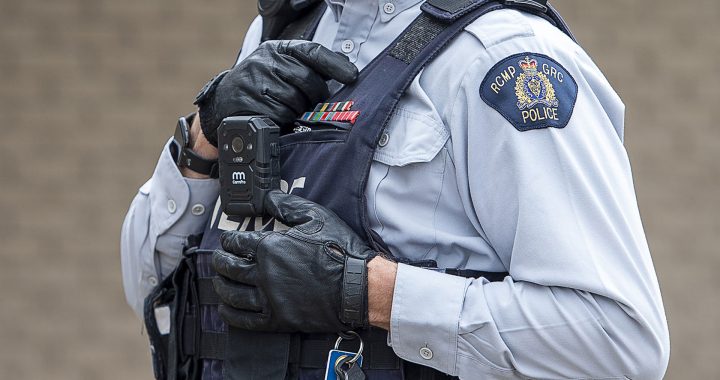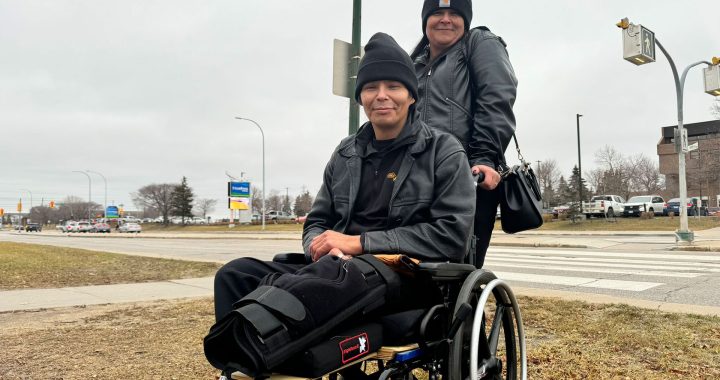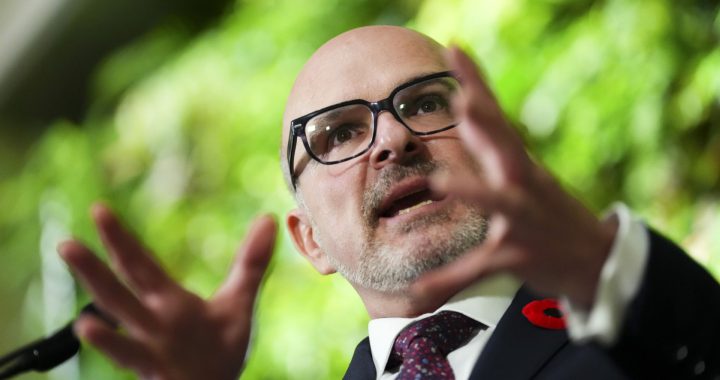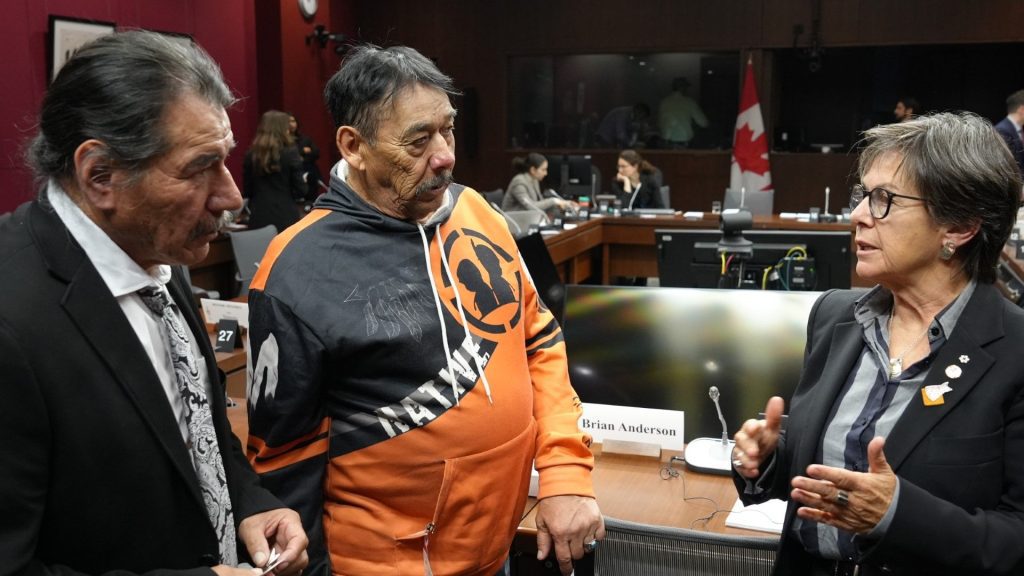
Clarence Woodhouse (right) speaks with Sen. Kim Pate in Ottawa on Oct. 24 as Brian Anderson looks on. Photo: Mark Blackburn/APTN News
Clarence Woodhouse was barely an adult when homicide detectives accused him of killing a man in 1973.
The false confession and life sentence that followed changed the Anishinabe man’s life for the worse.
“My time in prison was a living hell,” he said in a statement about his 50-year-old wrongful conviction this week, “primarily because of corrections staff who were determined to make me admit to a murder I did not commit or had any part in.
“By the time I was released from prison (on parole), 12 years later in 1983, I was institutionalized and found it extremely difficult to make it in society. I received no help, or direction.”
Woodhouse recorded the statement for the Senate Standing Committee on Legal and Constitutional Affairs, which is reviewing Bill C-40 to establish a miscarriage of justice review commission in Canada.
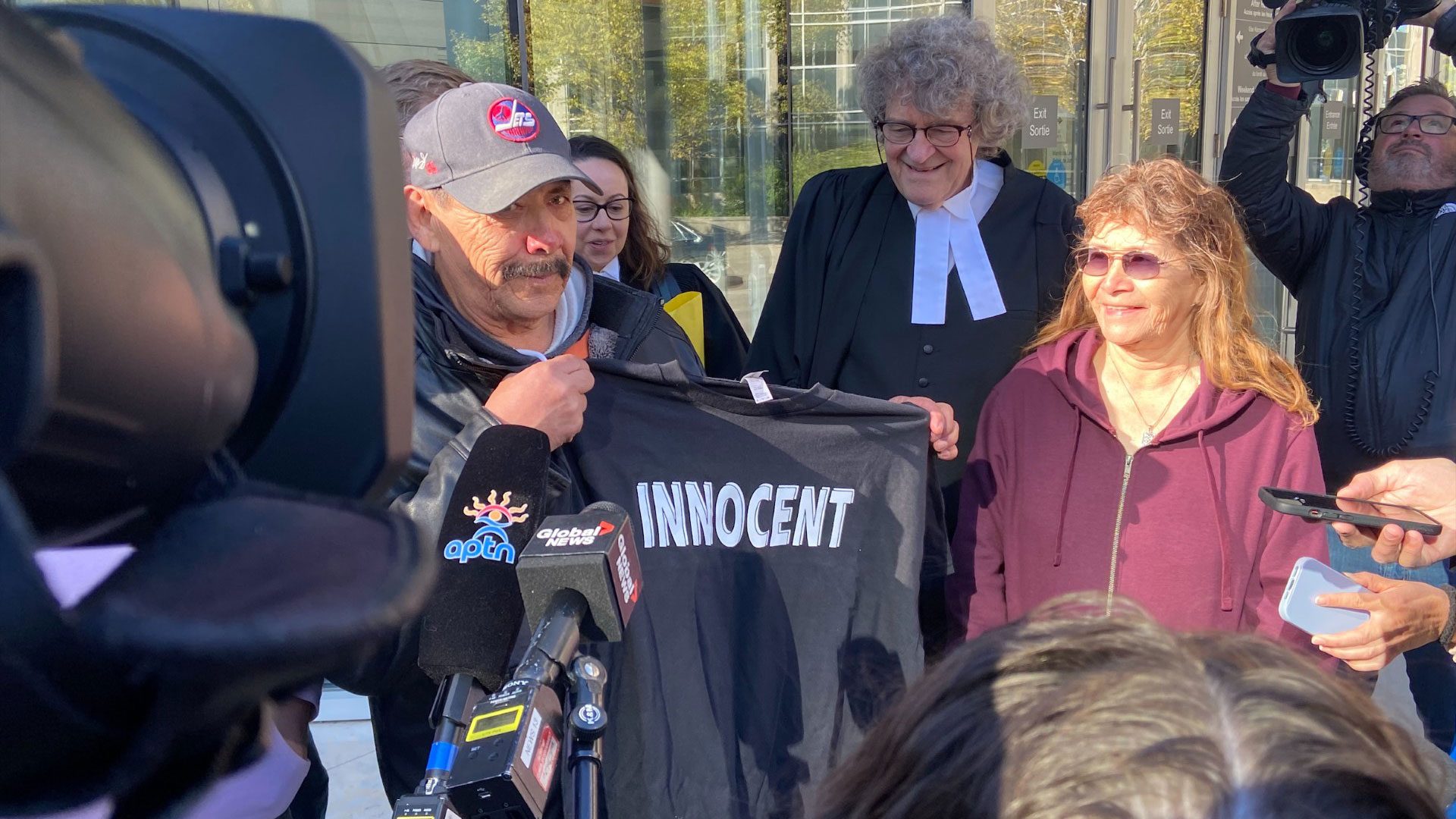 Clarence Woodhouse was acquitted and exonerated on Oct. 3 in Winnipeg. Photo: APTN News
Clarence Woodhouse was acquitted and exonerated on Oct. 3 in Winnipeg. Photo: APTN News
Woodhouse recorded the statement in his own language of Ojibwe after being denied the opportunity in Ottawa last week due to lack of a “qualified translator.” He shared an English version with APTN News.
Now 72, he recalled after his arrest, how he was denied an interpreter and allegedly “brutally assaulted” by Winnipeg police into signing a false confession.
“The prosecutor said I made the confession in English, a language I could not speak, read or write. I testified to that at trial, but no one believed me.”
Woodhouse and two co-accused, Brian Anderson and Allan Woodhouse, – all of Pinaymootang First Nation in Manitoba – have now been exonerated. A posthumous application for a wrongful conviction has been filed for Russell Woodhouse (Clarence’s brother), who has since died.
Exonerees, lawyers and legal scholars who testified before the committee over the past two weeks agreed Canada needs a faster and simpler system to review cases where people believe they’ve been wrongfully convicted.
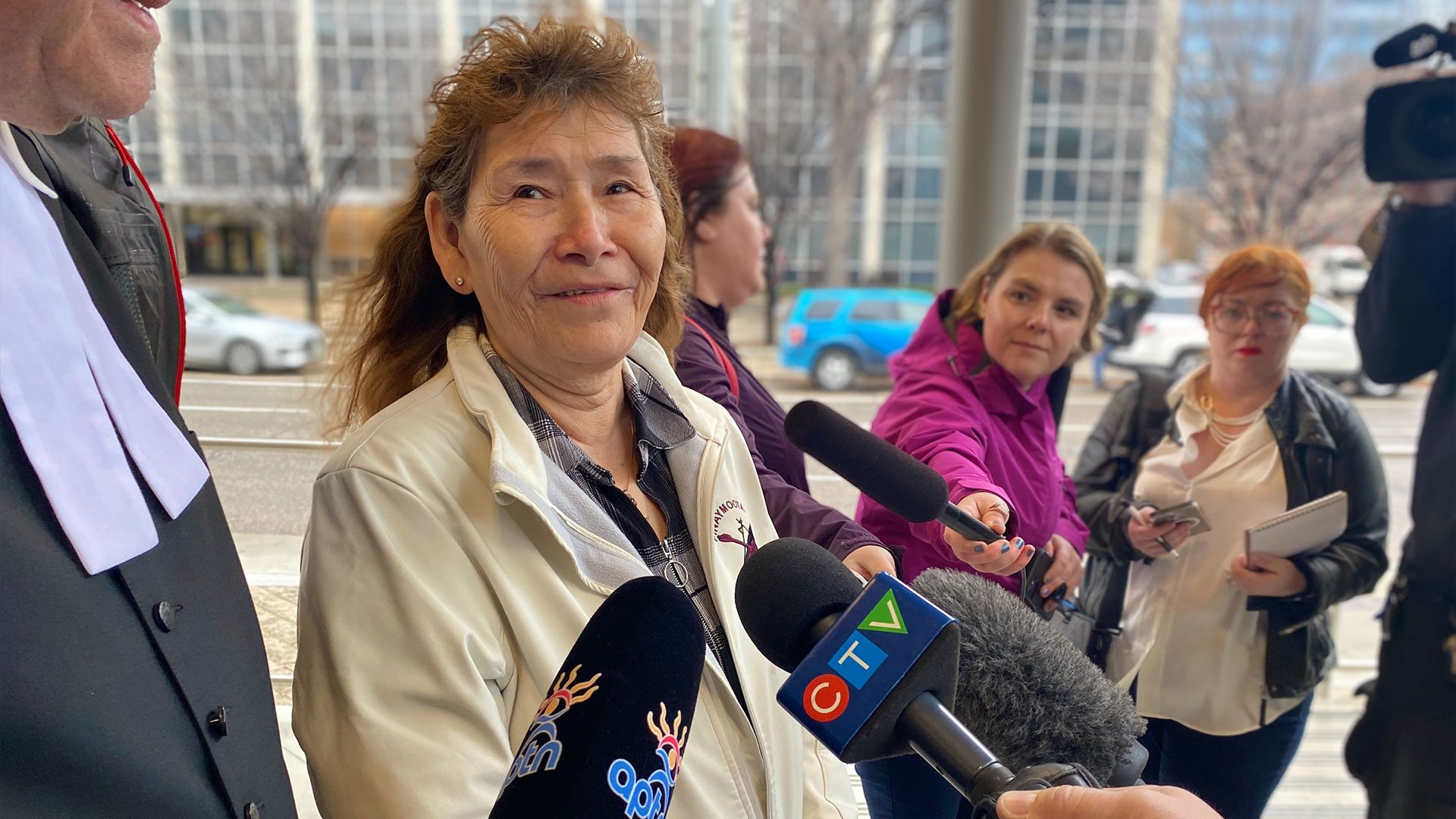
It now takes up to six years for the Criminal Conviction Review Group in the Department of Justice to review applications and make recommendations to the minister.
The new process would be called David and Joyce Milgaard’s Law in tribute to the mother and son from Winnipeg who sought reform after David was released in 1992 after 23 years in prison on a wrongful murder conviction.
Woodhouse said others like him in prison need Bill C-40.
“If Bill C-40 is passed, there will be a group to hear the cries for help from the innocent and they will not have to wait 50 years for their names to be cleared as we did,” he said in his statement.
“It was 50 years of uncertainty, struggle and unimaginable pain that never seems to end.”
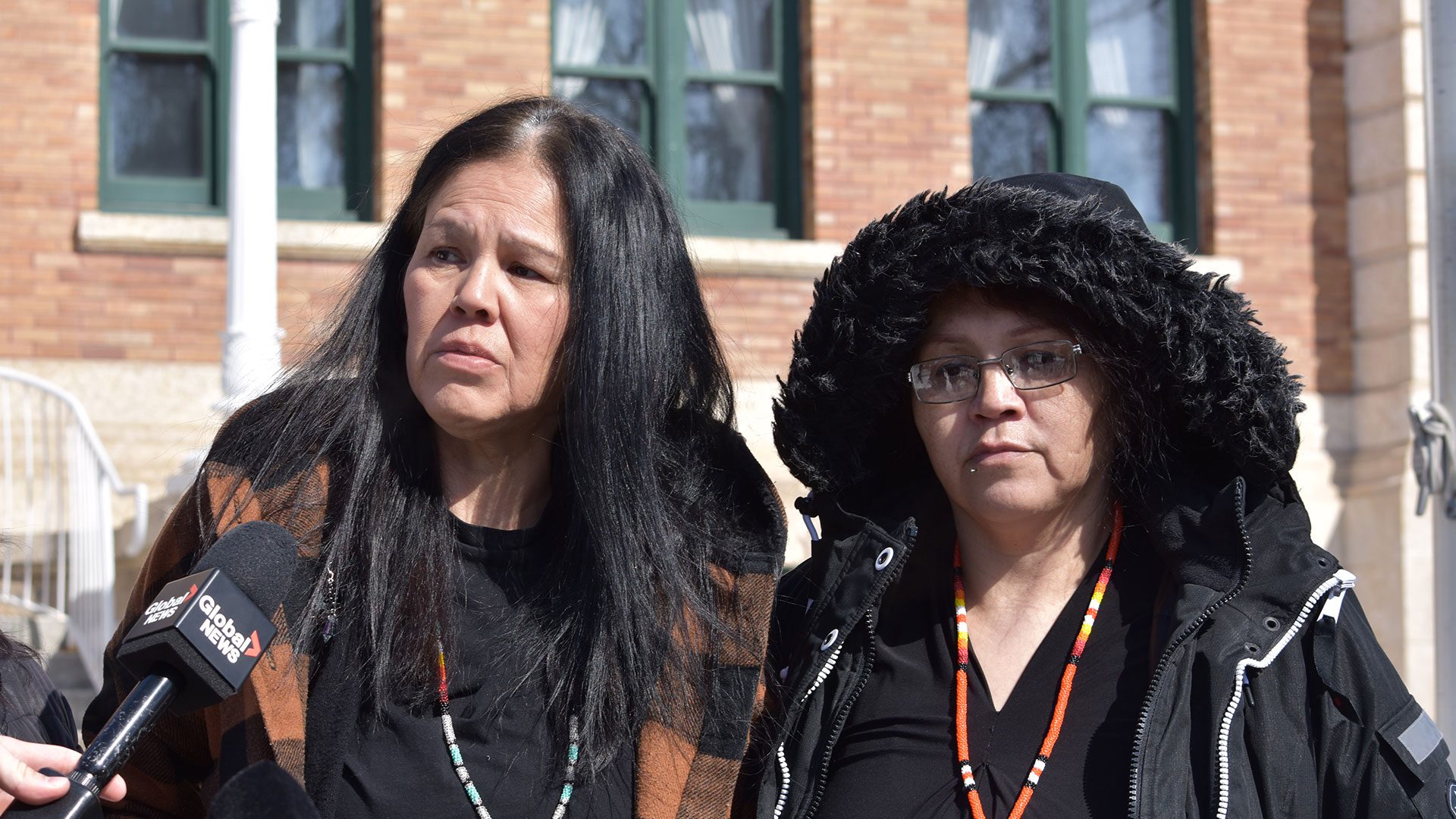
What’s really important, Woodhouse noted, is to replace the minister with an independent commission.
“The group is necessary because it will be separate from the system that convicted and imprisoned me and a lot of other innocent people across Canada,” he said.
The proposed legislation has already passed through the House of Commons. The Senate gives three readings to bills in order to become law.
Meanwhile, two sisters from Keeseekoose First Nation in Saskatchewan have been waiting more than a year for the federal justice minister’s decision on whether their case is a miscarriage of justice. Odelia and Nerissa Quewezance spent 30 years in prison for the 1994 killing of farmer Anthony Joseph Dolff. Their cousin has already admitted to the murder.




